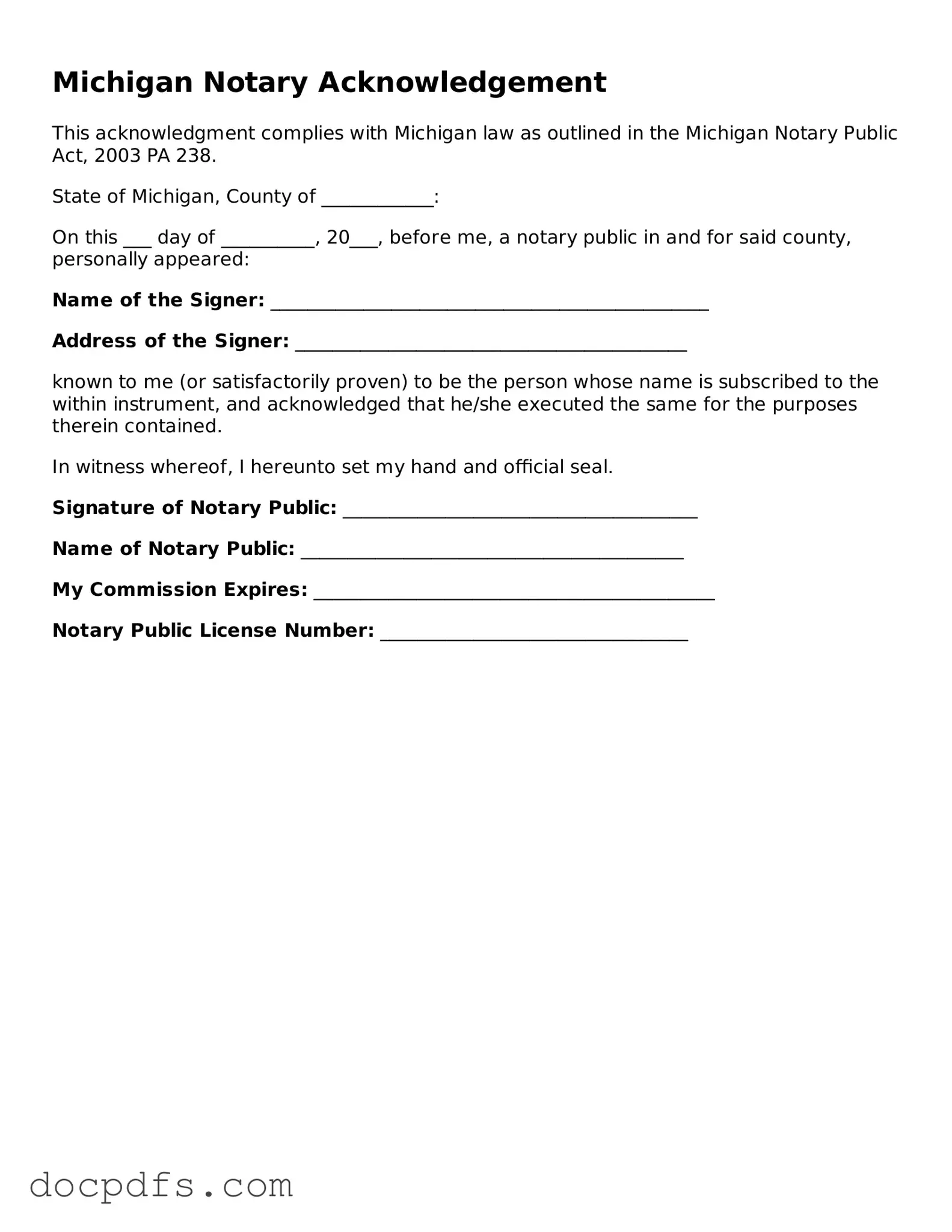Free Michigan Notary Acknowledgement Form
The Michigan Notary Acknowledgement form is a legal document that confirms a person's identity and their willingness to sign a document. This form is essential for ensuring that signatures are genuine and that the signers understand the contents of the documents they are signing. Understanding how to properly complete and use this form can help prevent disputes and ensure the validity of important agreements.
Open Notary Acknowledgement Editor Now

Free Michigan Notary Acknowledgement Form
Open Notary Acknowledgement Editor Now

Open Notary Acknowledgement Editor Now
or
⇓ Notary Acknowledgement
Finish this form the fast way
Complete Notary Acknowledgement online with a smooth editing experience.